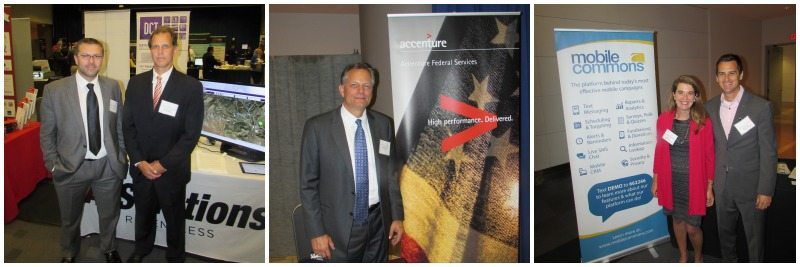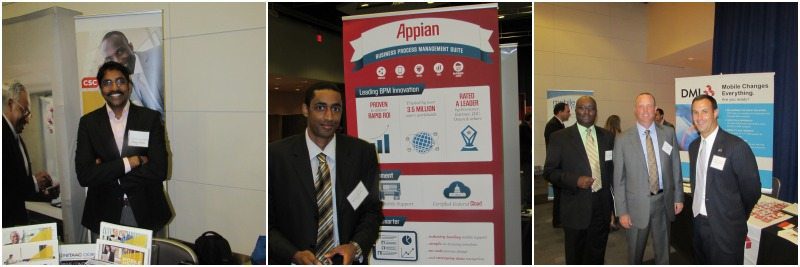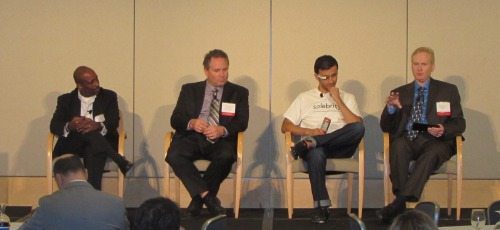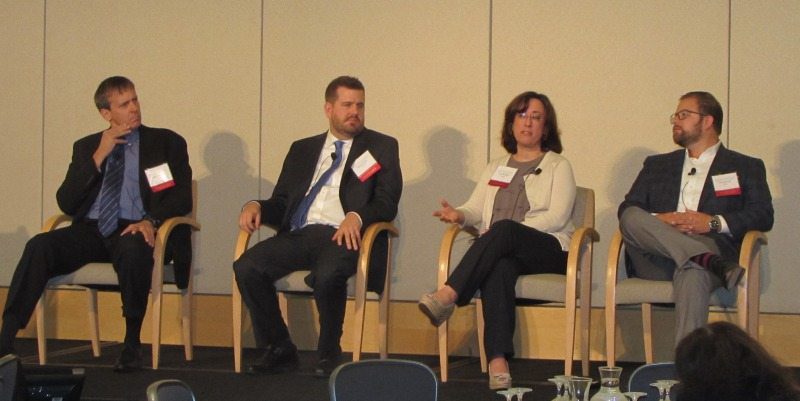
Mobile computing is changing government, and it will continue to for at least a while, according to industry and government thought leaders at last month’s Federal Mobile Computing Summit hosted by the Advanced Technology Academic Research Center (ATARC) at the Ronald Reagan Building in Washington, D.C.
The two-day conference marked the fifth of such mobile computing summit of its kind for ATARC. The nonprofit also hosted its annual big data and cloud computing summits respectively earlier in the summer.
Panels focused on requirements, challenges and solutions related to government worker use of mobility to enhance the mission.
One panel, moderated by Nextgov Executive Editor Camille Tuutti, spotlighted the advanced solutions government agencies are implementing for citizen services.
Scientists at the National Institutes of Health (NIH), for example, are tapping mobile capabilities to deliver behavioral interventions.
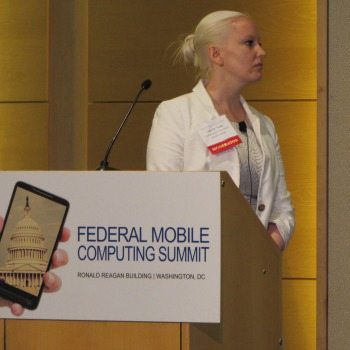
For smoking cessation, one idea is to use mobile to implement treatment rather than for merely delivering health information, said NIH Behavioral Scientist Erik Augustson.
In order to alter human behavior though, the group must equip users with mobile technology that is actually useful.
“In my world, smart-phone apps have failed, they’re easy to ignore and easy to delete,” Augustson said. “We’re not really leveraging functionality of the apps in a way that gets them to do what we need them to do.”
He said the ideal app would learn about its user as it operated.
Alex Kreilein, a technology policy strategist at the Department of Homeland Security (DHS), said that he and his teams are using mobile apps for those who work in public safety.
The challenge revolves around developing an application that solves problems and fulfills needs for users where they would not initially think to use mobile.
DHS is documenting the baseline human interface, power consumption and security standards that mobile devices would need to meet in order to be useful in the field. “Our goal is to make very few decisions but to provide many options,” Kreilein said.
At the General Services Administration, meanwhile, Mobile Programs Manager Jacob Parcell is wading through the multitude of available mobile strategies and experiences to identify the experience that is best for both the user and the organization.
Finally, at the U.S. Census Bureau, strategists use mobility to raise awareness about the products and statistics the agency tabulates so as to acquaint users with its trove of information and fulfill its mission, said Deputy Director Lisa Wolfisch.
Other panel topics included: mobility in healthcare, mobile security, mobile app vetting solutions as well as mobility in five years — wearables and the internet of things.
The two-day event also featured a technology showcase of dozens of vendors.
